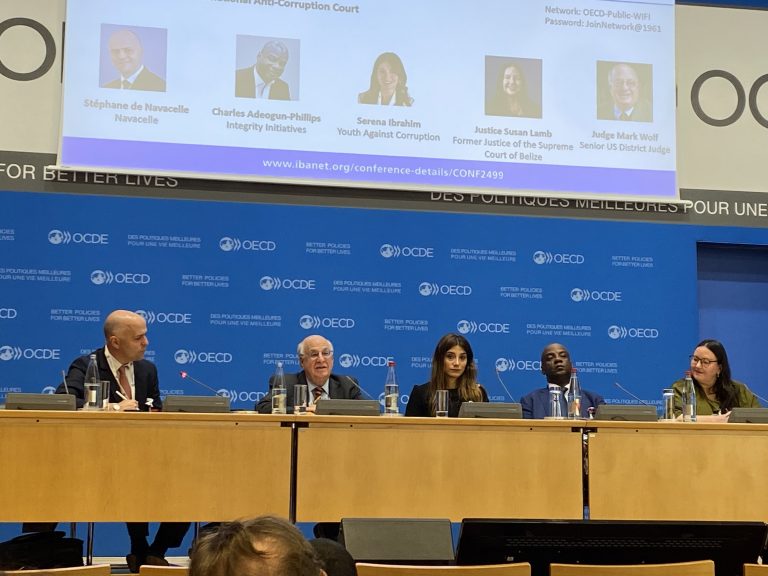In theory, the Sapin II law imposes strong anti-corruption obligations only on companies “employing at least five hundred employees or belonging to a group of companies whose parent company has its registered office in France and whose workforce includes at least five hundred employees, and whose turnover or consolidated turnover is greater than 100 million euros“[1].
However, this does not mean that small and medium-sized companies are not affected by anti-corruption issues. Indeed, corruption and influence peddling are an issue for all companies regardless of their size and can have serious economic, reputational, and legal consequences.
In addition, the Sapin II law’s obligations indirectly affect smaller companies as the duty of prevention to which large companies are bound leads them to carry out prior integrity checks on their business partners, which may be small and medium-sized companies [2]. Therefore, having an anti-corruption policy is an advantage for these companies over their competitors, especially since it promotes healthy management practices. Similarly, banks and investors are more likely to finance companies with an anti-corruption program [3].
These reasons have already convinced 50% of companies not affected by the obligations of the Sapin II law to deploy anti-corruption measures [4].
The French Anti-Corruption Agency (AFA) promotes this deployment of measures to all sizes of companies by publishing this “practical anti-corruption guide for small and medium-sized companies”, developed in consultation with the Confédération des Petites et Moyennes Entreprises (CPME) and the Mouvement des Entreprises de Taille Intermédiaire (METI). The AFA aims to be educational, offering illustrations of dangerous situations and practices to avoid, as well as concrete examples of remediation measures that can be considered.
It is undeniable that a small or mid-sized company may encounter difficulties in setting up some of the standards applied within larger groups. It may be too costly for such structures to specifically assign someone to anti-corruption issues, or to exhaustively check the integrity of each trading partner. Yet gifts issued or received by an employee[5], or a contract offered in exchange of personal favors[6], are risks that affect small and medium-sized companies just as much as large groups.
Through 13 sheets, this practical guide covers concrete ways to prevent risks of corruption within small and mid-sized companies, taking up the points already developed in its previous recommendations, namely the role of the manager, that of a possible person specifically in charge of corruption issues, the implementation of risk mapping, an anti-corruption code of conduct, training and awareness-raising actions for employees, the assessment of business partners’ integrity, an internal alert system, internal control mechanisms, accounting controls and finally disciplinary sanctions[7].
The AFA recalls that it is important for the head of a company to adopt an active role in the prevention of all forms of corruption and influence peddling [8]. It must adopt an exemplary attitude, remind that the company does not tolerate such practices under any circumstances (through internal regulations, the website, etc.) and take concrete preventive measures.
Risk-mapping is also essential to identify the methods, practices and activities that are most exposed within the company (exports, use of commercial intermediaries, submission to public contracts, administrative authorization processes, etc.). The AFA also specifies that these points of attention must be updated at each major event: acquisition of a competitor, launch of a new product, etc [9]. Depending on the results of the mapping, the implementation of specific instructions and actions may be considered, to better frame relations with business partners, especially regarding gifts and invitations, conflicts of interest, sponsorships [10].
The AFA also recalls that raising awareness and training employees on corruption prevention, signaling to them that they can express their doubts about a given situation in complete confidentiality, creates a healthy corporate culture. Furthermore, it is essential to identify the business partners that are most at risk, for instance in exposed sectors or from countries with lower anti-corruption requirements [11](commercial agents and other intermediaries are for example a significant source of risk). In addition, an anti-corruption code of conduct[12], subject to internal communication [13] or even adoption by certain business partners such as suppliers [14], is also a useful measure to be considered.
The AFA also mentions that internal reporting channels can be set up[15], especially since whistleblowers will soon be able to report a behavior they deem suspicious directly to the authorities if the company’s internal procedures are insufficient. As such, the development and adaptation of internal procedures both at organizational[16] and accounting levels[17], can reduce the exposure of the decision-making process to corruption. For instance, splitting decision-making processes can be considered to allow control by multiple stakeholders over the same operation[18]. The application of anti-corruption prevention measures must also be regularly monitored, especially in sectors identified as being at risk. Rigorous accounting checks on the services materially rendered can also avoid the risks of fictitious invoicing[19]. Finally, the AFA considers that it is imperative for the company that any violation of internal rules be effectively sanctioned internally [20].
Of course, the AFA is aware that the implementation of all these practices is casuistry and is specific to each company. The proportionality of the measures remains at the heart of the process (size, sector of activity, geographical location, etc. are all to be considered)[21]. However, the AFA recalls that it must be borne in mind that the costs of such measures are offset not only by the reduction in the risk of prosecution, but also by the competitive advantage such preventive policies provide in the relationship with large companies and financial actors.











